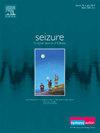Post-event sleep and tiredness in epilepsy versus vasovagal syncope
IF 2.7
3区 医学
Q2 CLINICAL NEUROLOGY
引用次数: 0
Abstract
Purpose
Differentiating epileptic seizures from vasovagal syncope (VVS) in children is challenging. Post-event symptoms, especially sleep and tiredness, may aid diagnosis. While post-event sleep is common in epilepsy, its occurrence in VVS is less understood. This study examines post-event sleep and tiredness duration in epilepsy and VVS.
Methods
This retrospective study analysed 272 patients (160 epilepsy, 112 VVS) from a seizure clinic (2017–2025). Post-event sleep and duration of tiredness occurrence were recorded from patient histories and follow-ups.
Results
All patients with epilepsy had postictal tiredness ≥2 h, with 49 % lasting >4 h. In contrast, 55.5 % of VVS patients had no tiredness or tiredness for <2 h. Sleep or prolonged fatigue is much more common following seizures in epilepsy (94 %) than in VVS (21 %). All VVS cases showing recovery sleep were associated with syncopal motor phenomena.
Conclusion
The absence or brief fatigue following a loss of consciousness event strongly suggests VVS, provided that the history indicates no motor phenomena. In contrast, post-event sleep and/or prolonged fatigue is a key indicator that the event may be an epileptic seizure or a syncopal episode with motor activity.
癫痫与血管迷走神经性晕厥的事后睡眠和疲劳
目的鉴别儿童癫痫发作与血管迷走神经性晕厥(VVS)具有挑战性。事件后的症状,尤其是睡眠和疲劳,可能有助于诊断。虽然事件后睡眠在癫痫中很常见,但其在VVS中的发生情况尚不清楚。本研究探讨了癫痫和VVS的事件后睡眠和疲劳持续时间。方法回顾性分析某癫痫门诊2017-2025年收治的272例患者(癫痫160例,VVS 112例)。从患者病史和随访中记录事件后睡眠和疲劳发生的持续时间。结果所有癫痫患者均出现后疲劳≥2小时,其中49%持续4小时。相比之下,55.5%的VVS患者没有疲劳或持续2小时。癫痫发作后睡眠或长时间疲劳(94%)比VVS(21%)更常见。所有显示恢复性睡眠的VVS病例均伴有晕厥运动现象。结论意识丧失事件后的缺失或短暂疲劳强烈提示VVS,但病史显示无运动现象。相反,事件后睡眠和/或长时间疲劳是事件可能是癫痫发作或伴有运动活动的晕厥发作的关键指标。
本文章由计算机程序翻译,如有差异,请以英文原文为准。
求助全文
约1分钟内获得全文
求助全文
来源期刊

Seizure-European Journal of Epilepsy
医学-临床神经学
CiteScore
5.60
自引率
6.70%
发文量
231
审稿时长
34 days
期刊介绍:
Seizure - European Journal of Epilepsy is an international journal owned by Epilepsy Action (the largest member led epilepsy organisation in the UK). It provides a forum for papers on all topics related to epilepsy and seizure disorders.
 求助内容:
求助内容: 应助结果提醒方式:
应助结果提醒方式:


